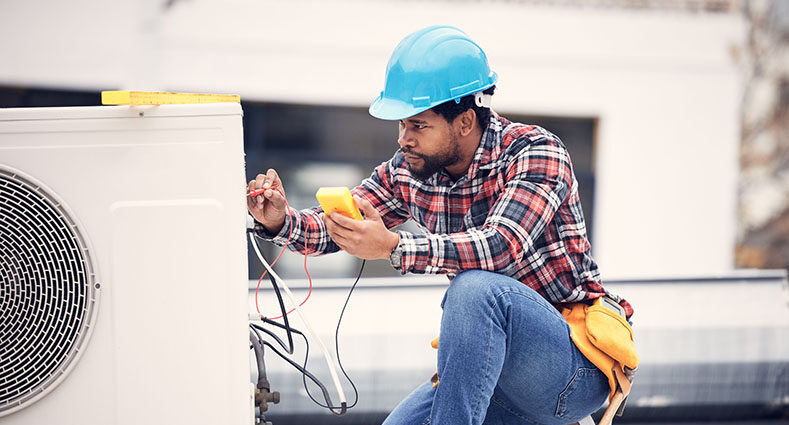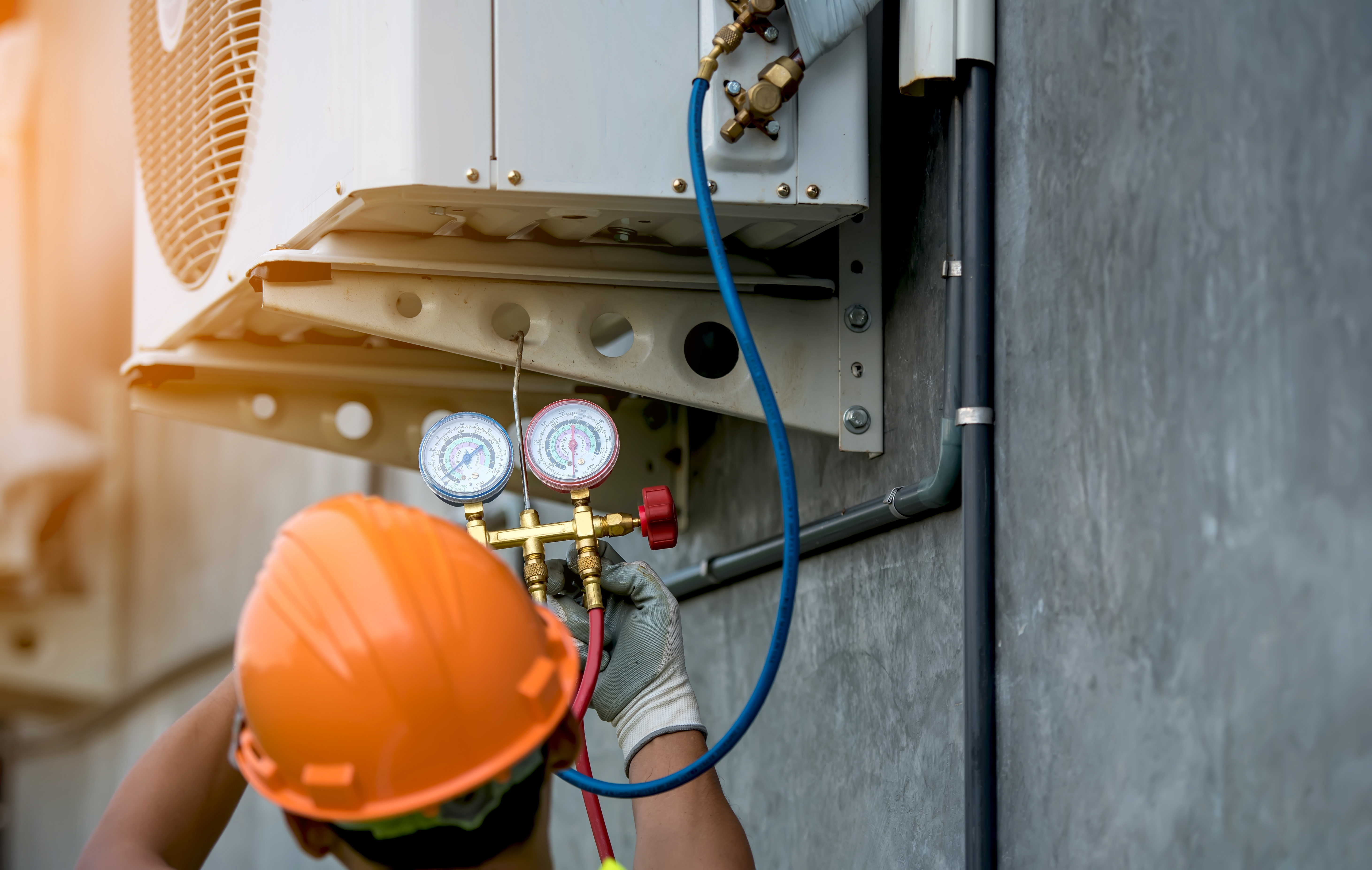The Significance of Heating And Cooling Knowledge: Discovering Reasons For Air Conditioning Issues for Property Owners
Homeowners commonly neglect the relevance of comprehending their HVAC systems. Acknowledging typical signs of cooling troubles can lead to prompt treatments. Concerns like inadequate cooling or uncommon noises are not simply inconveniences; they can indicate deeper concerns. By checking out the root causes of these problems, house owners can enhance system effectiveness and prolong its lifespan. What are the most widespread concerns that can develop, and just how can they be properly addressed?
Usual Indications of Air Conditioner Problems
How can house owners determine concerns with their cooling systems before they intensify? Acknowledging common signs of air conditioning issues is vital for prompt upkeep. One widespread sign wants cooling; if the air conditioning device falls short to lower the indoor temperature, it might indicate underlying problems. Uncommon sounds, such as grinding or hissing, can additionally suggest mechanical failures or loosened elements - ac unit replacement. Additionally, house owners ought to watch out for weird odors rising from the system, which could suggest mold growth or electric issues. Frequent cycling on and off, referred to as short biking, can show thermostat concerns or refrigerant leaks. Moreover, a boost in energy bills without a corresponding increase in use might direct to inadequacy. By staying alert to these indication, property owners can avoid a lot more considerable problems and pricey fixings, ensuring their air conditioning systems run effectively throughout the warmer months

Understanding Refrigerant Issues
Refrigerant issues can considerably affect the performance of a cooling and heating system. Homeowners ought to understand the indications of reduced refrigerant degrees and the value of finding refrigerant leakages. Dealing with these problems quickly can avoid more damages to the system and warranty optimal cooling performance.
Low Cooling Agent Degrees
A typical issue that property owners may experience with their a/c systems is low cooling agent levels, which can substantially impact the system's effectiveness and efficiency. Refrigerant is important for the cooling process, soaking up heat from interior air and releasing it outside. When degrees go down, the cooling device has a hard time to cool the room successfully, resulting in raised energy intake and possible system pressure. Symptoms of reduced cooling agent include inadequate air conditioning, longer run times, and ice formation on the evaporator coils. Home owners may additionally discover unusual sounds as the compressor works harder to make up for the shortage. It is necessary for home owners to recognize the importance of maintaining correct refrigerant levels to guarantee peak a/c efficiency and long life.
Refrigerant Leaks Discovery
Where might a house owner begin when encountered with the opportunity of refrigerant leaks in their cooling and heating system? The first action involves keeping an eye on the system's performance. Indications such as lowered cooling effectiveness, ice formation on coils, or hissing sounds may indicate a refrigerant leak. Home owners ought to likewise look for visible indications of oil deposit, frequently an indicator of a leak. Making use of a refrigerant leakage detector can provide even more precise recognition. If suspicions continue, consulting a certified HVAC professional is important, as they possess the competence and tools to find leaks effectively. Trigger detection and repair of refrigerant leakages not only enhance system efficiency but likewise avoid possible ecological injury, making it a vital aspect of a/c maintenance.
Electric Failures and Their Influence
Electric failures can considerably affect heating and cooling systems, particularly with problems like breaker breakdowns and damaged circuitry. These troubles not only interfere with the system's efficiency but can likewise lead to expensive repair services and safety risks. Comprehending the implications of such failures is vital for homeowners to keep a reliable and safe HVAC atmosphere.
Circuit Breaker Issues
Exactly how can circuit breaker issues influence the efficiency of a cooling and heating system? Circuit breakers function as important security devices that handle electric flow to HVAC units. If a circuit breaker journeys often, it disrupts power supply, causing irregular check my source home heating or cooling. This can trigger significant pressure on the system, leading to ineffective procedure and possible damages to parts. Homeowners may discover raised power expenses as a result of the a/c system's battle to keep desired temperatures. Additionally, repeated disturbances from tripped breakers can reduce the life expectancy of the a/c system, needing expensive fixings or substitutes. Regular maintenance of breaker is crucial, as it guarantees a steady power supply, eventually enhancing the overall effectiveness of the HVAC system.
Faulty Electrical Wiring Effects
Frequently overlooked, faulty circuitry can have alarming consequences for HVAC systems. Electrical wiring problems might result in brief circuits, leading to constant break downs and enhanced repair service expenses. In enhancement, inappropriate electrical wiring can create ineffective power use, bring about greater utility expenses and stress on the system. In extreme cases, damaged wiring can cause electric fires, posing a substantial safety risk to home owners. These electrical failings can damage A/c parts, resulting in expensive replacements or substantial repair work. Property owners must prioritize regular examinations by qualified specialists to identify and correct circuitry problems prior to they escalate. Recognizing the implications of malfunctioning electrical wiring can assist guarantee the durability and safety and security of heating and cooling systems, ultimately protecting both the home and its owners.
Clogged Filters and Their Effects
While many property owners may forget the importance of regular filter upkeep, clogged filters can lead to substantial repercussions for HVAC systems. When filters end up being blocked with dirt, dust, and particles, air flow is limited. This reduction in airflow compels the system to function harder, leading to enhanced energy consumption and possibly greater energy costs. In time, this pressure can create deterioration on parts, resulting in premature system failing.
Additionally, clogged up filters can compromise interior air high quality. Toxins and allergens may distribute throughout the home, exacerbating respiratory concerns and allergies for owners. Moreover, poor airflow can create the evaporator coil to ice up, leading to expensive repairs and inefficient cooling efficiency. Frequently altering or cleaning up filters is a simple yet necessary upkeep job that can help ensure the longevity and effectiveness of a/c systems, ultimately benefiting both the homeowner's comfort and their funds.

Thermostat Malfunctions Explained
What happens when a thermostat breakdowns can greatly impact both comfort and power performance in a home (HVAC company). A damaged thermostat might fail to precisely review the temperature, causing overcooling or not enough cooling. This inconsistency can trigger discomfort for owners and result in higher energy bills, as the a/c system works tougher than needed
Typical concerns include dead batteries, which can render digital thermostats faulty, and loose electrical wiring that disrupts communication between the thermostat and the heating and cooling unit. In addition, outdated or inadequately calibrated thermostats may not respond appropriately to temperature changes, further aggravating energy inadequacy.
Property owners must be vigilant for signs of breakdown, such as inconsistent temperature levels or unforeseen energy costs. Regular checks and understanding of the thermostat's capability can aid recognize problems early, making certain peak efficiency of the heating and cooling system. Attending to thermostat problems quickly is essential for maintaining a comfy living atmosphere and managing power intake effectively.
The Role of Normal Maintenance
Routine upkeep plays a necessary duty in making sure the durability and performance of heating and cooling systems. Homeowners that prioritize routine checks can avoid small issues from rising right into pricey repair services. Routine maintenance commonly consists of jobs such as cleansing filters, examining ductwork, and checking refrigerant levels. These activities aid preserve suitable air flow and system efficiency, reducing power usage.
Furthermore, a well-kept HVAC system operates much more efficiently, supplying consistent convenience throughout the home. Routine tune-ups can additionally extend the lifespan of the unit, causing significant savings in time. Home owners are encouraged to arrange professional examinations at the very least air conditioning system company as soon as a year to determine potential troubles early.
Furthermore, numerous manufacturers need normal maintenance to maintain guarantees, making this method not just valuable however commonly required. Overall, recognizing the importance of regular upkeep encourages property owners to secure their heating and cooling systems against unforeseen failings and enhance their financial investment in home comfort.
Often Asked Questions
Just How Can I Boost My Air conditioner's Power Performance?
Improving an air conditioner's power efficiency involves routine maintenance, cleansing or changing filters, sealing ductwork, guaranteeing appropriate insulation, utilizing programmable thermostats, and organizing specialist assessments to determine and rectify prospective issues impacting efficiency.
What Is the Lifespan of a Typical Air Conditioning System?
A common air conditioning device has discover this a lifespan of 15 to 20 years, depending upon upkeep, usage, and environmental factors. Normal maintenance can greatly prolong its operational life and boost general efficiency.
When Should I Change My Cooling System?
A cooling system should normally be changed every 10 to 15 years. Indications for substitute include constant fixings, rising energy expenses, and inadequate cooling, indicating that an upgrade may be extra economical and effective.
Can I Repair Air Conditioning Troubles Myself?
Yes, individuals can repair air conditioner troubles themselves by checking filters, ensuring power supply, and inspecting for noticeable issues (ac fix). Intricate issues typically require specialist help for exact diagnosis and secure repair service, making certain suitable system efficiency.
How Do I Pick a Dependable Heating And Cooling Technician?

To select a trusted heating and cooling specialist, one need to seek recommendations, examine on-line testimonials, confirm licenses and insurance coverage, assess experience, and demand thorough price quotes to assure high quality service and fair prices before making a choice.
Verdict
To summarize, a strong understanding of HVAC systems allows property owners to efficiently identify and address usual cooling problems. Acknowledging indications such as poor cooling or climbing energy prices permits prompt interventions, which can significantly enhance system effectiveness and longevity. By remaining educated concerning prospective issues like refrigerant leakages, electrical failings, and clogged up filters, home owners can take positive steps to preserve their systems, eventually guaranteeing convenience and advertising a healthier living setting. Normal maintenance stays crucial to this venture.